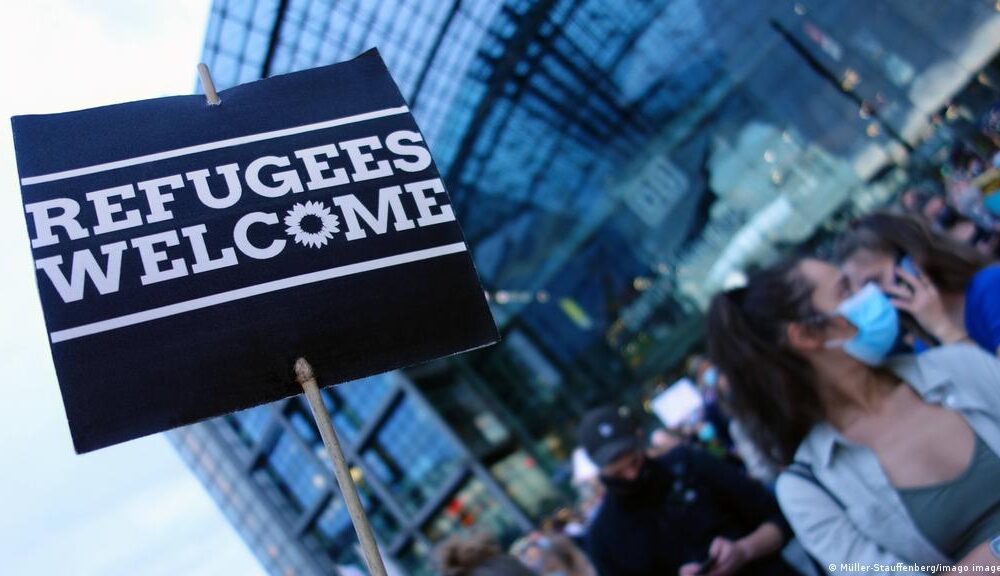Canada’s open-arms response to the recent Ukrainian refugee crisis is, rightfully, a point of pride for Canadians. Refugees of all backgrounds face unimaginable challenges through no fault of their own, from dangerous sea crossings to lasting mental trauma. Countries that recognize these challenges and contribute their attention and resources to refugee settlement do make a positive impact. However, Canada and Quebec’s hasty policies for Ukrainian refugees are not reflective of their typical refugee policies, which raises doubts about whether these governments are genuinely motivated by humanitarian principles, rather than political and racial bias.
On March 3, Immigration Minister Sean Fraser announced that Canada will allow an unlimited number of Ukranians to apply for expedited visa stays of up to two years, waiving quotas, the usual application fees, and high barrier requirements such as language or labour market impact assessments. The visa process, which usually takes a year to complete, will be expedited to a matter of weeks for Ukrainians. At the provincial level, Quebec immigration minister Jean Boulet announced $5-million in grants to 14 community organizations related to the support and francization of incoming Ukrainian refugees. Quebec also has no limit set on the number of Ukrainian refugees it will accept through Canada’s program.
Especially for students and young adults, expedited temporary visas are relatively quick to process and are an effective short-term policy response to global refugee crises. The policy grants refugees thrown into uncertainty time to safely study or work before making difficult long-term decisions about their future. That said, this thoughtful policy is highly uncharacteristic of Canada, a nation that often avoids such open-access temporary visa programs on the grounds that people will overstay them upon expiry.
For context, Canada has approved 7,885 Afghan refugee applications in seven months, in contrast to the over 6,000 Ukrainian applications approved in the last 10 weeks —many even being accepted before concerns about Russian aggression fully materialized. By contrast, migration opportunities for Syrian refugees fleeing war to Canada have quietly declined ever since the influx in 2016. Their path to Canada has essentially become limited to private sponsorship cases, which are both rare and come with high financial barriers.
Upon being prompted to acknowledge that the same temporary visa opportunities are not offered to refugees from Africa or the Middle East, Fraser and Prime Minister Justin Trudeau insisted there was no bias involved, stating that each situation is unique. The justification offered is that Ukraine’s western borders are currently open, and over one million Ukrainian refugees have already successfully crossed over to neighbouring countries, from which it is easier to apply to come to Canada. Meanwhile, in Afghanistan for instance, refugees face several barriers crossing into neighbouring Pakistan, including required bribes, police aggression at checkpoints, and heavy travel restrictions imposed by the Taliban.
However, the Canadian government’s justifications are no excuse for abandoning efforts to ensure fairness. Unique situations, such as those in Syria and Afghanistan, warrant especially comprehensive criteria and consultation. There are several reputable international and local refugee organizations, such as Aman Lara, that are ready to coordinate with the Canadian government to offer the same hope to young non-Ukrainian refugees.
Canada’s inequitable refugee policy reflects more than laziness on behalf of the government—it carries the weight of a racist, and unfortunately common, rhetoric circulating mainstream media: That Ukrainian refugees, the majority of them white Christian Europeans, will better fit into Canadian society. Especially compared to Western media coverage of the Middle East, Ukrainian refugees have been depicted as more civilized and consequently more worthy of the support the Western world has to offer.
This narrative is morally reprehensible. Canada is home to some of the most proudly multicultural cities in the world, and the modern “Canadian” is no longer defined by a single ethnicity, religion, or cultural practice. Quebec, in particular, must be aware of its racial bias, as it invests millions in the francization of Ukrainian refugees while sitting on a backlog of non-white applications—a situation made worse when considering it cut immigration to the province by 20 per cent in 2019. Premier Legault justified the cut by citing the difficulty of integrating newcomers into society and the labour market—now not the most convincing explanation given Quebec’s immigration policy for Ukrainians.
To truly offer equal opportunity, the government must acknowledge the racist implications of its policy in this current social climate, instead of dismissing criticisms with the logistical and bureaucratic excuses refugees hear too often. As shown through its policy for Ukrainian refugees, Canada’s stressful and invasive procedures imposed on refugees from other active conflict zones, namely Syria and Afghanistan, were unnecessary. The federal and provincial governments have demonstrated their capacity to help refugees regain agency over their lives, and it is time they extend these opportunities equitably.







